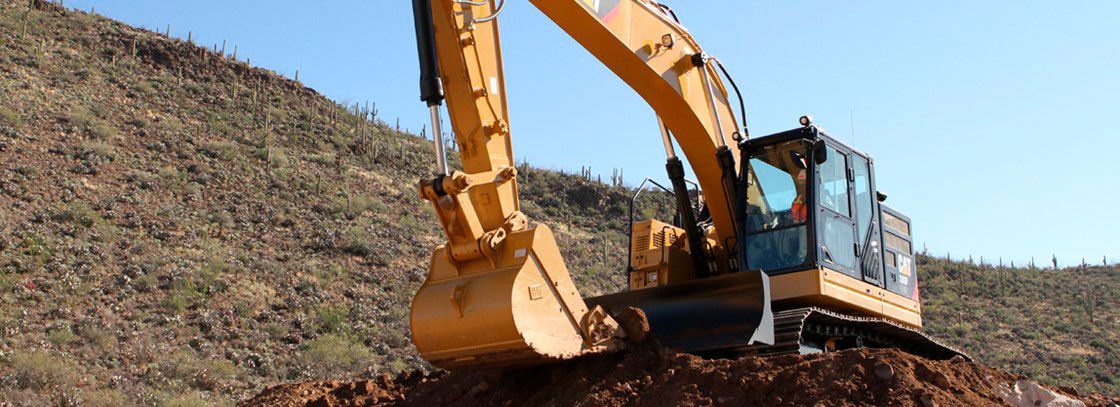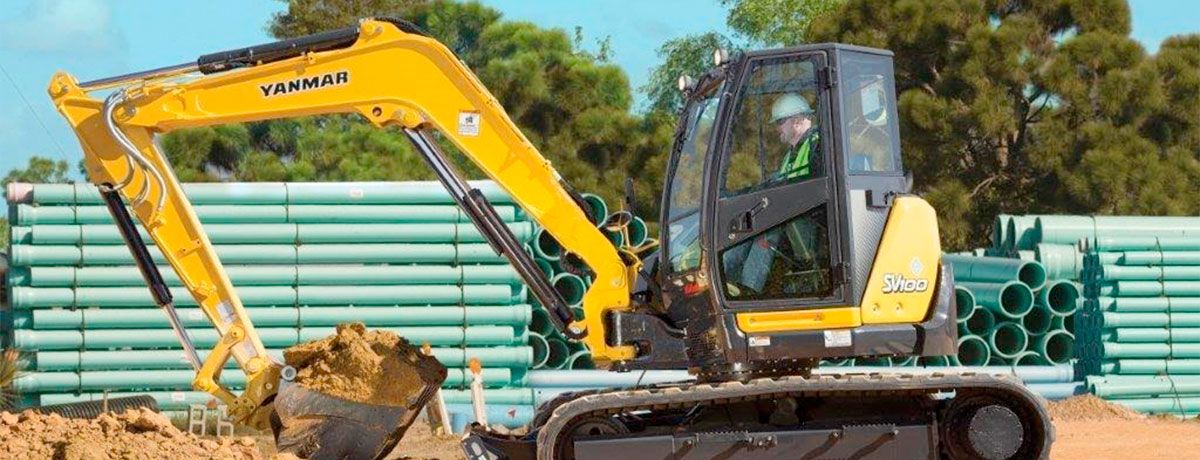How to Get Into the Field of Heavy Equipment Operator Jobs

Last summer you worked with your brother in the warehouse he manages and had the opportunity to operate a couple of forks lifts. You unloaded trucks with them and even got into placing and retrieving pallets full of products from the racks. In the process you discovered a couple of things, 1) that you have a knack for operating this type of equipment and that 2) you really enjoy it as well. The whole experience left you wondering who hires heavy equipment operators for cranes, bulldozers, earth movers, excavators, front end loaders and more and how people go about securing heavy equipment operator jobs.
The Job of the Heavy Equipment Operator The operation of heavy equipment entails more than just loading pallets onto trucks (although that’s certainly one aspect of it). The heavy equipment operator needs to know how to safely maneuver large heavy machinery in cramped spaces under trying conditions, how to calculate a safe load, how to read and follow architectural blueprints and how to maintain their machinery in top condition. If your desire is to just hop in the cab and go, you’re barking up the wrong career tree. The size of the equipment in play along with the loads that are typically moved about mean that even small mistakes could lead to fatalities. Heavy equipment operation is no joke or idle pastime. It takes training, awareness and a commitment to safety.
Where do Heavy Equipment Operators Work?
Most heavy equipment operators work outdoors often, as mentioned, under trying conditions. The pay can be good but the work can also be spotty due to the vagaries of business and the disruptive tendencies of Mother Nature. Some operators, like those on kangaroo cranes atop skyscrapers, are required to have nerves of steel, be highly motivated and always follow safety guidelines without having to be told to do so. Others may be part of a team building a roadway or unloading a truck and as such must take pains not to violate established procedures for navigating in busy locations.
Who do They Work For?
Most heavy equipment operators wind up working for a contractor or rental company. Both have their advantages and disadvantages and we’ll get into that in a few moments. The contractor could be a company that builds hi-rise office buildings or it could be a company that has a waste-disposal contract with the city. The rental company is just that: a company that rents heavy equipment, primarily to contractors.
Working for a Contractor

Working for a contractor is attractive to those who like the predictability of working with the same group of people on a regular basis. In addition the work is interesting, you get to work outside most of the time and the pay is generally good. Nationally, a heavy equipment operator can expect to make anywhere from $29,000 to about $74,000 a year, with the national average coming in around $45,000. Some states however are “right to work” states, which means heavy equipment operators in those states can expect to make less and have fewer benefits.
Working for a Rental Company: There are a growing number of jobs available for operators in the construction equipment rental business. This has become one of the fastest growing segments of the construction industry as companies have begun shifting away from equipment ownership, lured by the versatility and savings inherent in renting. Many companies that rent equipment want and expect a trained operator to come with the machinery which is the factor driving job growth in this market.
Working for a rental company is attractive to some because they get to work with a variety of different people on different types of jobs. In addition, because the rental company has its fingers in many pies if one company is down there are likely many more that are up and so work is often steadier than if you work for a single contractor. Salaries for heavy equipment operators who work with rental companies are basically on par with those of contractors; although the same downward salary pressure is exerted in “right to work” states.
Qualifications
Basic qualifications for becoming a heavy equipment operator include:
-
A high school diploma.
-
On the job training or apprenticeships.
-
1 or more years of experience.
-
License and/or certification (does not apply to all heavy equipment).
-
Good hand/eye coordination, excellent vision and a steady hand.
-
A commercial driver’s license (does not apply to all heavy equipment).
-
A clean bill of health.
In addition, some companies will require those seeking heavy equipment operator jobs to submit to a background check while others will want to see a level of technical proficiency, such as familiarity with GPS apps etc.
Earning a Heavy Equipment Operator Certification or License
Not all states require heavy equipment operators to be licensed but some do. Crane operators, for instance, are often required to undergo special training and pass a licensing exam that includes both written and practical components. Certification from an organization like the National Commission for the Certification of Crane Operators (NCCCO) is typically good for 5 years, after which it must be renewed. At the time of renewal the operator must also have accrued a minimum of 1,000 hours of behind the controls experience.
As we mentioned earlier some employers will require operators to have a valid commercial driver’s license. This is because, in many cases, the operator is also the person who transports the heavy equipment to and from the jobsite using a flatbed truck. If you are serious about heavy equipment operation as a career path you’ll need to maintain all necessary licenses and certifications.
Where can I Get Heavy Equipment Certified?

As mentioned the NCCCO runs a certification program for crane operators that will allow you to work just about anywhere for 5 years. There are a plethora of other schools both public and private that also run certification courses for various types of heavy equipment operators. Manufacturers like CAT run their own training and certification programs and the International Union of Equipment Operators (IUOE) also have an active certification program.
Heavy Equipment Safety
There are nearly 1,000 construction related deaths every year in the US alone. As such job site safety continues to be a primary concern for both contractors and renters of heavy equipment. One of the primary responsibilities of the heavy equipment operator is to perform their various tasks safely; certification and licensing are excellent ways to help ensure that.
Can I Learn by Renting Heavy Equipment?
Even if you don’t have a mini excavator lying about that you can take for a spin you might still want to look into excavator rentals to see if you enjoy the work and have any aptitude for it before you go all-in on a career as a heavy equipment operator. In that case the question becomes: “Where can I drive heavy equipment?
The first and most obvious answer is one of the training and certification schools discussed above such as the NCCCO. You can also try to rent a piece of heavy equipment just to practice on it, though heavy equipment rental rates are not cheap. In addition the rental company will want to know exactly where you intend to do this practicing, whether you have any necessary permits and who will be supervising so that their expensive equipment doesn’t wind up on the 6 o’clock news.
If that all seems a bit too involved for you there are (believe it or not) theme parks popping up that allow you to operate heavy equipment for a few hours for a few hundred dollars. You won’t get a lot of experience but you will get a feel for the controls and a sense of whether you’d enjoy the work or not.
Conclusion
Talented, conscientious heavy equipment operators today are in demand. The rise of the equipment rental company is driving much of that demand as contractors are opting to rent both machine and operator for their projects rather than buying equipment and hiring full time operators of their own. If you are interested in becoming a heavy equipment operator it’s a good idea to try and find a piece of equipment you can practice on. This way you’ll know if it’s really for you before you go commit to it as a career path. If no one you know has access to heavy equipment you might want to consider signing up for a certification course. If that still seems a bit much why not try one of the aforementioned heavy equipment theme parks? They’re new, they’re here and you might as well take advantage of them.

